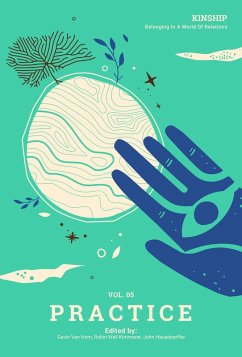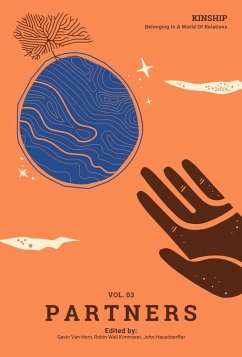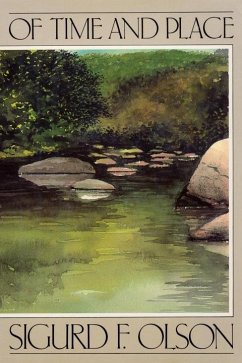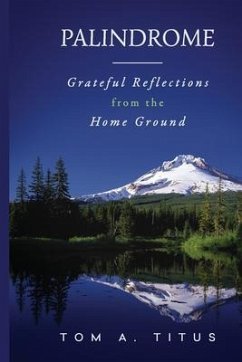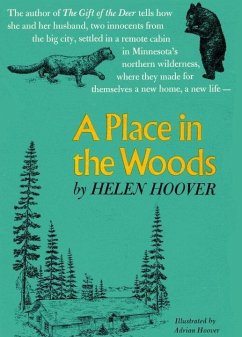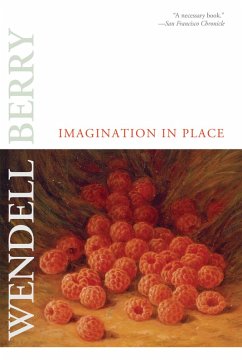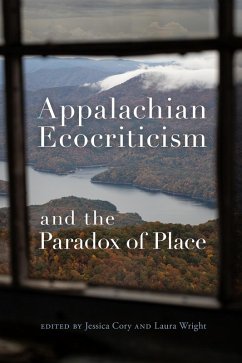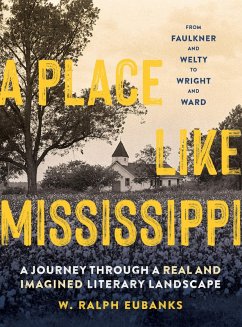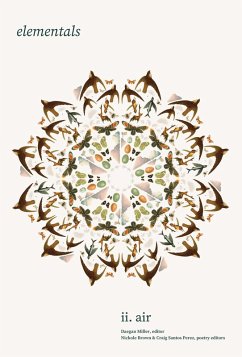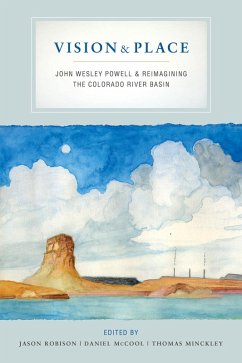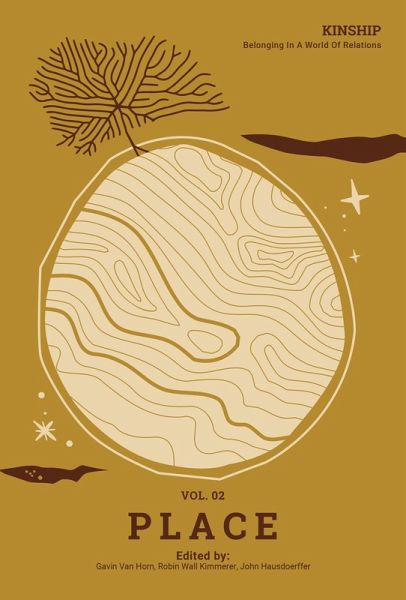
Kinship: Belonging in a World of Relations, Vol. 2 - Place (eBook, ePUB)

PAYBACK Punkte
0 °P sammeln!
*Part of the 5-Volume Set 2022 Nautilus Book Award Gold Medal Winner: Ecology & Environment and Special Honors as Best of AnthologyVolume 2 of the Kinship series revolves around the question of place-based relations: To what extent does crafting a deeper connection with the Earth's bioregions reinvigorate a sense of kinship with the place-based beings, systems, and communities that mutually shape one another?We live in an astounding world of relations. We share these ties that bind with our fellow humans―and we share these relations with nonhuman beings as well. From the bacterium swimmi...
*Part of the 5-Volume Set 2022 Nautilus Book Award Gold Medal Winner: Ecology & Environment and Special Honors as Best of Anthology
Volume 2 of the Kinship series revolves around the question of place-based relations: To what extent does crafting a deeper connection with the Earth's bioregions reinvigorate a sense of kinship with the place-based beings, systems, and communities that mutually shape one another?
We live in an astounding world of relations. We share these ties that bind with our fellow humans―and we share these relations with nonhuman beings as well. From the bacterium swimming in your belly to the trees exhaling the breath you breathe, this community of life is our kin―and, for many cultures around the world, being human is based upon this extended sense of kinship.
Kinship: Belonging in a World of Relations is a lively series that explores our deep interconnections with the living world. The five Kinship volumes―Planet, Place, Partners, Persons, Practice―offer essays, interviews, poetry, and stories of solidarity, highlighting the interdependence that exists between humans and nonhuman beings. More than 70 contributors―including Robin Wall Kimmerer, Richard Powers, David Abram, J. Drew Lanham, and Sharon Blackie―invite readers into cosmologies, narratives, and everyday interactions that embrace a more-than-human world as worthy of our response and responsibility.
Given the place-based circumstances of human evolution and culture, global consciousness may be too broad a scale of care. "Place," Volume 2 of the Kinship series, addresses the bioregional, multispecies communities and landscapes within which we dwell. The essayists and poets in this volume take us around the world to a variety of distinctive places―from ethnobiologist Gary Paul Nabhan's beloved and beleaguered sacred U.S.-Mexico borderlands, to Pacific islander and poet Craig Santos Perez's ancestral shores, to writer Lisa María Madera's "vibrant flow of kinship" in the equatorial Andes expressed in Pacha Mama's constitutional rights in Ecuador. As Chippewa scholar-activist Melissa Nelson observes about kinning with place in her conversation with John Hausdoerffer: "Whether a desert mesa, a forested mountain, a windswept plain, or a crowded city―those places also participate in this serious play with raven cries, northern winds, car traffic, or coyote howls." This volume reveals the ways in which playing in, tending to, and caring for place wraps us into a world of kinship.
Proceeds from sales of Kinship benefit the nonprofit, non-partisan Center for Humans and Nature, which partners with some of the brightest minds to explore human responsibilities to each other and the more-than-human world. The Center brings together philosophers, ecologists, artists, political scientists, anthropologists, poets and economists, among others, to think creatively about a resilient future for the whole community of life.
Volume 2 of the Kinship series revolves around the question of place-based relations: To what extent does crafting a deeper connection with the Earth's bioregions reinvigorate a sense of kinship with the place-based beings, systems, and communities that mutually shape one another?
We live in an astounding world of relations. We share these ties that bind with our fellow humans―and we share these relations with nonhuman beings as well. From the bacterium swimming in your belly to the trees exhaling the breath you breathe, this community of life is our kin―and, for many cultures around the world, being human is based upon this extended sense of kinship.
Kinship: Belonging in a World of Relations is a lively series that explores our deep interconnections with the living world. The five Kinship volumes―Planet, Place, Partners, Persons, Practice―offer essays, interviews, poetry, and stories of solidarity, highlighting the interdependence that exists between humans and nonhuman beings. More than 70 contributors―including Robin Wall Kimmerer, Richard Powers, David Abram, J. Drew Lanham, and Sharon Blackie―invite readers into cosmologies, narratives, and everyday interactions that embrace a more-than-human world as worthy of our response and responsibility.
Given the place-based circumstances of human evolution and culture, global consciousness may be too broad a scale of care. "Place," Volume 2 of the Kinship series, addresses the bioregional, multispecies communities and landscapes within which we dwell. The essayists and poets in this volume take us around the world to a variety of distinctive places―from ethnobiologist Gary Paul Nabhan's beloved and beleaguered sacred U.S.-Mexico borderlands, to Pacific islander and poet Craig Santos Perez's ancestral shores, to writer Lisa María Madera's "vibrant flow of kinship" in the equatorial Andes expressed in Pacha Mama's constitutional rights in Ecuador. As Chippewa scholar-activist Melissa Nelson observes about kinning with place in her conversation with John Hausdoerffer: "Whether a desert mesa, a forested mountain, a windswept plain, or a crowded city―those places also participate in this serious play with raven cries, northern winds, car traffic, or coyote howls." This volume reveals the ways in which playing in, tending to, and caring for place wraps us into a world of kinship.
Proceeds from sales of Kinship benefit the nonprofit, non-partisan Center for Humans and Nature, which partners with some of the brightest minds to explore human responsibilities to each other and the more-than-human world. The Center brings together philosophers, ecologists, artists, political scientists, anthropologists, poets and economists, among others, to think creatively about a resilient future for the whole community of life.
Dieser Download kann aus rechtlichen Gründen nur mit Rechnungsadresse in A, B, CY, CZ, D, DK, EW, E, FIN, F, GR, H, IRL, I, LT, L, LR, M, NL, PL, P, R, S, SLO, SK ausgeliefert werden.




